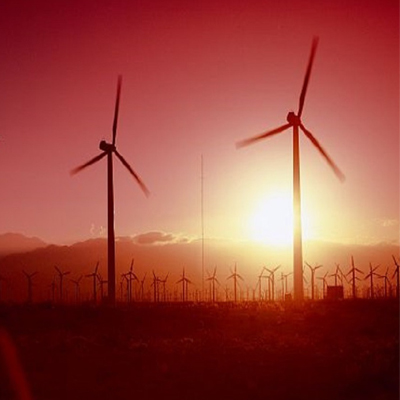Recovery of energy from waste and biomass has a number of environmental benefits including the retrieval of energy from a low carbon source.
Recovery of energy from waste and biomass has a number of environmental benefits including the retrieval of energy from a low carbon source. In the case of waste-derived fuels, this also helps reduce the amount of waste that will eventually need to be disposed of. Once waste has been recycled, the residual waste that remains can be a source of this low carbon energy. In the future, the integration of these energy technologies with CO2 capture and storage will provide heat and electricity with ‘negative’ CO2 emissions, depending on the biogenic content of the feedstock.
We have undertaken extensive work into high efficiency energy from waste solutions, using both thermal technologies or bio-chemical processes:
- Landfill – for example, optimising landfill gas energy production and reduction of carbon dioxide to boost methane levels using hollow fibre membranes.
- Combustion/Incineration – either the co-firing of biomass or waste with coal to reduce its carbon footprint or for reducing the volume of combustible wastes for disposal while recovering energy
- Gasification and Pyrolysis – using thermal conversion processes to convert biomass and waste into an energy-rich gas, comprising hydrogen, carbon monoxide and methane and leaving safely disposable residues
- Anaerobic Digestion – production of biogas, methane and digestate from biodegradable organic wastes, food and agricultural resides, sewage sludge, etc.
- Biofuels – such as the development of an integrated process for biogas production from algal biomass.
About our research
Our greatest strength is the ability to combine the academic rigour and long-term perspective of a university with the commercial and business focus of industry.
Our excellence in strategic and applied research has enabled us to make significant contributions to the world around us for over 60 years. We address real life challenges and focus on research that is of strategic and practical importance.
We provide a supportive research community for students and our academic work is regularly published in journal article, book or thesis form.
Facilities and resources
We operate unique engineering-scale facilities for the development of efficient technologies with low CO2 emissions. Our test rigs for advanced fuel combustion are world-leading and allow us to generate engineering data to reduce the risks of scaling up the technologies. Find out more about our unique facilities.
Anaerobic Digestion Pilot Plant – used to optimise digestion with materials such as algae and food waste and to examine the fate of hazardous substances. We undertake laboratory-scale feedstock and end-product analysis, along with pilot-scale trials. Full flow cold temperature anaerobic wastewater treatment is possible to increase biogas production and reduce aeration demands. This plant will be directly linked to a 50kWth combustion engine in the near future to allow direct assessment of biogas characteristics on engine performance and emissions.
200kWth Circulating Fluidised Bed Combustor/Gasifier Pilot Plant – this fully-instrumented unit can be used to investigate the air/oxygen combustion of a wide range of biomass or waste feedstocks to assess process efficiency and environmental impact in terms of CO2 emissions, conventional pollutants (SOx, NOx, CO) and unburned hydrocarbons (PAHs, dioxins and furans), as well as the full suite of heavy metals. As a gasifier, it can use a range of fossil, biomass and waste fuels and includes downstream high temperature filtration, sorbent injection for CO2/H2S/HCl reduction and selective oxidation for NH3 reduction, as well as test sections for the exposure of candidate materials and monitoring devices.
150kWth Pulverised Fuel and Fluidised Bed Combustor Pilot Plant (for air- and oxy-firing) – this unit has been extensively used to support the development of biomass co-firing in the UK. It has removable radiant and convective heat exchanger tubes for materials performance and fouling/slagging studies combined with a comprehensive gas analysis capability. The fluidised bed unit has been widely used to evaluate the combustion performance, emissions and agglomeration behaviour using a wide range of biomass and waste feedstocks.
75kWth Spouted Fluidised Bed Gasifier – capable of processing solid fuels (including coal, waste and biomass) at up to 15kg/h. Varying degrees of downstream cleaning can be used. The bed can be fluidised using air and/or steam and has facilities for bed sorbent additions. Cooled probes for deposition and materials studies can be added along the hot gas path. The system has on-line gas analysis and process parameter monitoring with continuous data logging. We also have a 50kWth downdraught gasifier for fixed bed studies.
In addition to the facilities highlighted above, we have a full range of biomass/waste preparation facilities, including drying and pelletisation. We also routinely use our combustion rigs, combustion engines and gas turbines to evaluate the performance and emissions of simulated bio- and waste-derived fuel gases.
Working with us
We are internationally renowned for working closely with industry. We partner with many leading businesses in this area to deliver innovative solutions to their real-life problems.
Our world-class academics have proven research records and are in constant touch with industry whether through education, delivery of short courses or providing consultancy.
Our research benefits from the strong synergy that has been developed between the science, engineering and management disciplines ensuring that concepts and solutions can be employed by modern day business.
Clients and partners
We frequently work with a number of research and industrial clients. We can provide one-to-one consultancy solutions or work as part of a consortium of partners.
Research partners include:
• Bill and Melinda Gates Foundation
• Department of Energy & Climate Change (DECC)
• Department for Environment, Food and Rural Affairs (DEFRA)
• Ellen MacArthur Foundation
• Energy Technologies Institute (ETI)
• Engineering and Physical Sciences Research Council (EPSRC)
• Natural Environment Research Council (NERC)
• Small Business Research Initiative (SBRI)
• Technology Strategy Board (TSB).
Business clients we have worked with include:
• Caterpillar
• Centre for Process Innovation
• Covanta Energy
• E.ON
• National Physical Laboratory (NPL)
• Rolls Royce
• Shanks
• Siemens
• Viridor
• Yorkshire Water.
